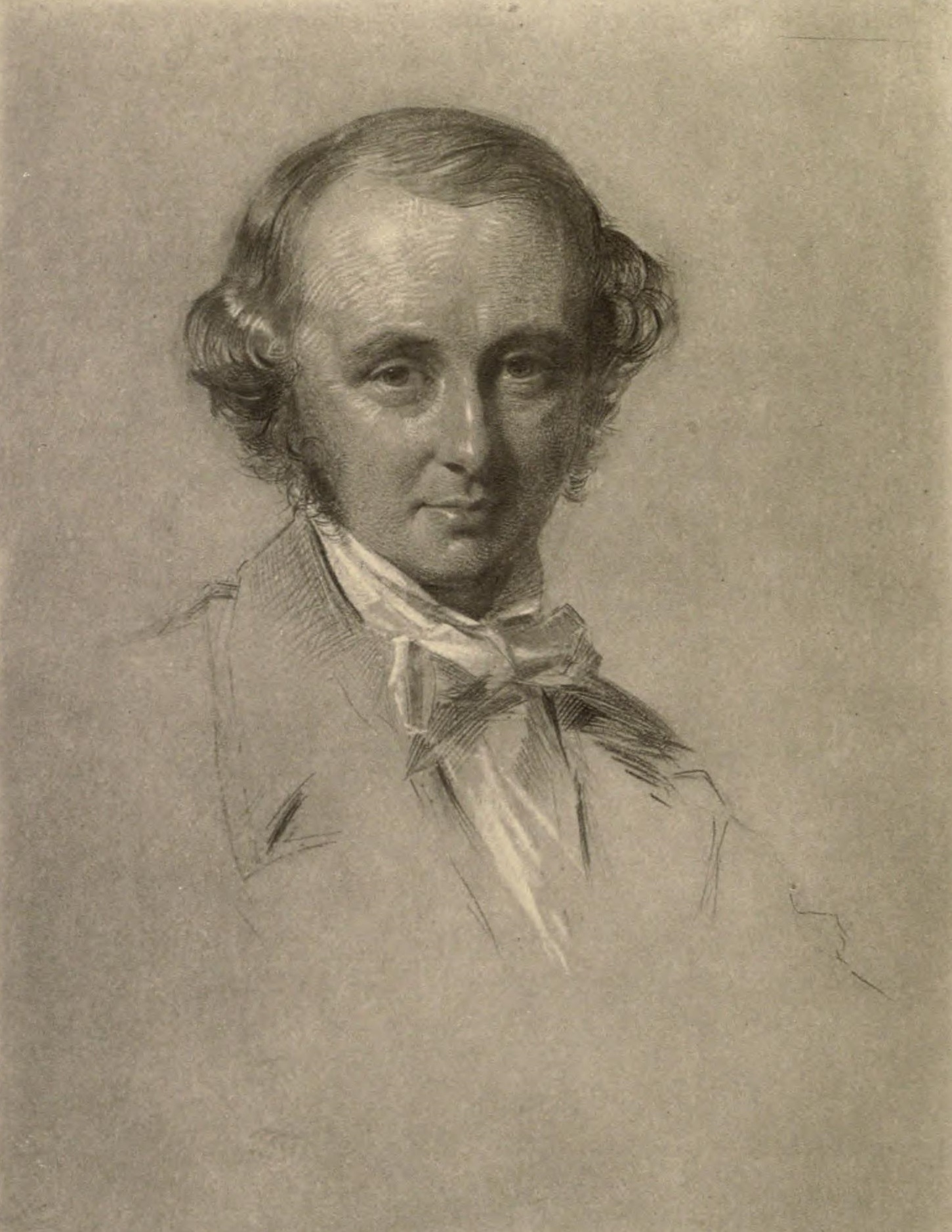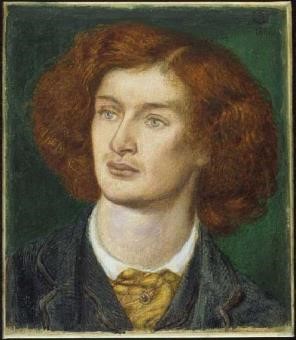|
Walter Pater
Walter Horatio Pater (4 August 1839 – 30 July 1894) was an English essayist, art critic and literary critic, and fiction writer, regarded as one of the great stylists. His first and most often reprinted book, ''Studies in the History of the Renaissance'' (1873), revised as ''The Renaissance: Studies in Art and Poetry'' (1877), in which he outlined his approach to art and advocated an ideal of the intense inner life, was taken by many as a manifesto (whether stimulating or subversive) of Aestheticism. Early life Born in Stepney in London's East End, Walter Pater was the second son of Richard Glode Pater, a physician who had moved to London in the early 19th century to practise medicine among the poor. Dr Pater died while Walter was an infant and the family moved to Enfield. Walter attended Enfield Grammar School and was individually tutored by the headmaster. In 1853 he was sent to The King's School, Canterbury, where the beauty of the cathedral made an impression that would r ... [...More Info...] [...Related Items...] OR: [Wikipedia] [Google] [Baidu] |
Elliott & Fry
Elliott & Fry was a Victorian era, Victorian photography studio founded in 1863 by Joseph John Elliott (14 October 1835 – 30 March 1903) and Clarence Edmund Fry (1840 – 12 April 1897). For a century, the firm's core business was taking and publishing photographs of the Victorian public and social, artistic, scientific and political luminaries. In the 1880s, the company operated three studios and four large storage facilities for negatives, with a printing works at Chipping Barnet, Barnet. The firm's first address was 55 & 56 Baker Street in London, premises they occupied until 1919. The studio employed a number of photographers, including Francis Henry Hart and Alfred James Philpott in the Edwardian era, Herbert Lambert and Walter Benington in the 1920s and 1930s and subsequently William Flowers. During World War II, the studio was bombed and most of the early negatives were lost; the National Portrait Gallery (London), National Portrait Gallery currently holds all of the surv ... [...More Info...] [...Related Items...] OR: [Wikipedia] [Google] [Baidu] |
John Ruskin
John Ruskin (8 February 1819 20 January 1900) was an English writer, philosopher, art critic and polymath of the Victorian era. He wrote on subjects as varied as geology, architecture, myth, ornithology, literature, education, botany and political economy. Ruskin's writing styles and literary forms were equally varied. He wrote essays and treatises, poetry and lectures, travel guides and manuals, letters and even a fairy tale. He also made detailed sketches and paintings of rocks, plants, birds, landscapes, architectural structures and ornamentation. The elaborate style that characterised his earliest writing on art gave way in time to plainer language designed to communicate his ideas more effectively. In all of his writing, he emphasised the connections between nature, art and society. Ruskin was hugely influential in the latter half of the 19th century and up to the First World War. After a period of relative decline, his reputation has steadily improved since the 1960s wi ... [...More Info...] [...Related Items...] OR: [Wikipedia] [Google] [Baidu] |
Clara Pater
Clara Ann Pater (''bap.'' 1841–1910) was an English scholar, a tutor, and a pioneer and early reformer of women's education. Pater contributed to the growing movement for educational equality among women of the Victorian era as they began to graduate from and contribute to institutions of higher education that had traditionally been all-male. Pater served on multiple committees, such as Louise Creighton's Committee of Oxford Lectures for Ladies and the Association for Promoting the Higher Education of Women in Oxford. Pater taught Greek, Latin, and German at Somerville College from 1879, and served as the first resident tutor from 1885. She became the vice principal of Somerville in 1886. Vera Brittain described her as representing the "quintessence of Oxford aestheticism" in her dress and appearance, a movement with which her brother was closely associated. After the death of her brother, essayist and Renaissance scholar Walter Pater in 1894, Clara Pater moved to Kensington, ... [...More Info...] [...Related Items...] OR: [Wikipedia] [Google] [Baidu] |
University Of Oxford
, mottoeng = The Lord is my light , established = , endowment = £6.1 billion (including colleges) (2019) , budget = £2.145 billion (2019–20) , chancellor = The Lord Patten of Barnes , vice_chancellor = Louise Richardson , students = 24,515 (2019) , undergrad = 11,955 , postgrad = 12,010 , other = 541 (2017) , city = Oxford , country = England , coordinates = , campus_type = University town , athletics_affiliations = Blue (university sport) , logo_size = 250px , website = , logo = University of Oxford.svg , colours = Oxford Blue , faculty = 6,995 (2020) , academic_affiliations = , The University of Oxford is a collegiate research university in Oxf ... [...More Info...] [...Related Items...] OR: [Wikipedia] [Google] [Baidu] |
Anglican Church
Anglicanism is a Western Christian tradition that has developed from the practices, liturgy, and identity of the Church of England following the English Reformation, in the context of the Protestant Reformation in Europe. It is one of the largest branches of Christianity, with around 110 million adherents worldwide . Adherents of Anglicanism are called ''Anglicans''; they are also called ''Episcopalians'' in some countries. The majority of Anglicans are members of national or regional ecclesiastical provinces of the international Anglican Communion, which forms the third-largest Christian communion in the world, after the Roman Catholic Church and the Eastern Orthodox Church. These provinces are in full communion with the See of Canterbury and thus with the Archbishop of Canterbury, whom the communion refers to as its ''primus inter pares'' (Latin, 'first among equals'). The Archbishop calls the decennial Lambeth Conference, chairs the meeting of primates, and is the pres ... [...More Info...] [...Related Items...] OR: [Wikipedia] [Google] [Baidu] |
British Undergraduate Degree Classification
The British undergraduate degree classification system is a grading structure for undergraduate degrees or bachelor's degrees and integrated master's degrees in the United Kingdom. The system has been applied (sometimes with significant variations) in other countries and regions. History The classification system as currently used in the United Kingdom was developed in 1918. Honours were then a means to recognise individuals who demonstrated depth of knowledge or originality, as opposed to relative achievement in examination conditions. Concern exists about possible grade inflation. It is claimed that academics are under increasing pressure from administrators to award students good marks and grades with little regard for those students' actual abilities, in order to maintain their league table rankings. The percentage of graduates who receive a First (First Class Honours) has grown from 7% in 1997 to 26% in 2017, with the rate of growth sharply accelerating toward the end of ... [...More Info...] [...Related Items...] OR: [Wikipedia] [Google] [Baidu] |
Benjamin Jowett
Benjamin Jowett (, modern variant ; 15 April 1817 – 1 October 1893) was an English tutor and administrative reformer in the University of Oxford, a theologian, an Anglican cleric, and a translator of Plato and Thucydides. He was Master of Balliol College, Oxford. Early life Jowett was born in Camberwell, London, the third of nine children. His father was a furrier originally from a Yorkshire family that, for three generations, had been supporters of the Evangelical movement in the Church of England, and an author of a metrical translation of the Old Testament Psalms. His mother, Isabella Langhorne (1790–1869), was related to John Langhorne, the poet and translator of Plutarch. At the age of 12, Jowett was placed on the foundation of St Paul's School (then in St Paul's Churchyard) where he soon gained a reputation as a precocious classical scholar. Aged 18 he was awarded an open scholarship to Balliol College, Oxford, where he remained for the rest of his life. He began ... [...More Info...] [...Related Items...] OR: [Wikipedia] [Google] [Baidu] |
Hegel
Georg Wilhelm Friedrich Hegel (; ; 27 August 1770 – 14 November 1831) was a German philosopher. He is one of the most important figures in German idealism and one of the founding figures of modern Western philosophy. His influence extends across the entire range of contemporary philosophical topics, from metaphysical issues in epistemology and ontology, to political philosophy, the philosophy of history, philosophy of art, philosophy of religion, and the history of philosophy. Born in 1770 in Stuttgart during the transitional period between the Enlightenment and the Romantic movement in the Germanic regions of Europe, Hegel lived through and was influenced by the French Revolution and the Napoleonic wars. His fame rests chiefly upon ''The Phenomenology of Spirit'', ''The Science of Logic'', and his lectures at the University of Berlin on topics from his ''Encyclopedia of the Philosophical Sciences''. Throughout his work, Hegel strove to address and correct the problema ... [...More Info...] [...Related Items...] OR: [Wikipedia] [Google] [Baidu] |
Swinburne
Algernon Charles Swinburne (5 April 1837 – 10 April 1909) was an English poet, playwright, novelist, and critic. He wrote several novels and collections of poetry such as ''Poems and Ballads'', and contributed to the famous Eleventh Edition of the ''Encyclopædia Britannica''. Swinburne wrote about many taboo topics, such as lesbianism, sado-masochism, and anti-theism. His poems have many common motifs, such as the ocean, time, and death. Several historical people are featured in his poems, such as Sappho ("Sapphics"), Anactoria ("Anactoria"), and Catullus ("To Catullus"). Biography Swinburne was born at 7 Chester Street, Grosvenor Place, London, on 5 April 1837. He was the eldest of six children born to Captain (later Admiral) Charles Henry Swinburne (1797–1877) and Lady Jane Henrietta, daughter of the 3rd Earl of Ashburnham, a wealthy Northumbrian family. He grew up at East Dene in Bonchurch on the Isle of Wight. The Swinburnes also had a London home at Whitehall G ... [...More Info...] [...Related Items...] OR: [Wikipedia] [Google] [Baidu] |
Baudelaire
Charles Pierre Baudelaire (, ; ; 9 April 1821 – 31 August 1867) was a French poet who also produced notable work as an essayist and art critic. His poems exhibit mastery in the handling of rhyme and rhythm, contain an exoticism inherited from Romantics, but are based on observations of real life. His most famous work, a book of lyric poetry titled ''Les Fleurs du mal'' (''The Flowers of Evil''), expresses the changing nature of beauty in the rapidly industrializing Paris during the mid-19th century. Baudelaire's highly original style of prose-poetry influenced a whole generation of poets including Paul Verlaine, Arthur Rimbaud and Stéphane Mallarmé, among many others. He is credited with coining the term modernity (''modernité'') to designate the fleeting, ephemeral experience of life in an urban metropolis, and the responsibility of artistic expression to capture that experience. Marshall Berman has credited Baudelaire as being the first Modernist. Early life Baudelaire ... [...More Info...] [...Related Items...] OR: [Wikipedia] [Google] [Baidu] |
Théophile Gautier
Pierre Jules Théophile Gautier ( , ; 30 August 1811 – 23 October 1872) was a French poet, dramatist, novelist, journalist, and art and literary critic. While an ardent defender of Romanticism, Gautier's work is difficult to classify and remains a point of reference for many subsequent literary traditions such as Parnassianism, Symbolism, Decadence and Modernism. He was widely esteemed by writers as disparate as Balzac, Baudelaire, the Goncourt brothers, Flaubert, Pound, Eliot, James, Proust and Wilde. Life and times Gautier was born on 30 August 1811 in Tarbes, capital of Hautes-Pyrénées département (southwestern France). His father was Jean-Pierre Gautier,See "Cimetières de France et d'ailleurs – La descendance de Théophile Gautier", landrucimetieres.fr/ref> a fairly cultured minor government official, and his mother was Antoinette-Adelaïde Cocard. The family moved to Paris in 1814, taking up residence in the ancient Marais district. Gautier's education comm ... [...More Info...] [...Related Items...] OR: [Wikipedia] [Google] [Baidu] |









